Browse
Education
USAID's new higher education on-line learning module--This learning module covers how investing in higher education programming can be transformational, key elements of USAID Higher Education programming, milestones and lessons, cross-cutting considerations, and higher education reporting indicators. https://www.edu-links.org/online-learning-modules#HE
By:
Amy Jamison
Monday, Aug 16, 2021
EDUCATION

No Preview Available
Leave a comment
Department of State Fellows Alumnus Continued Success!
AAP is excited to share that Raymond Musiima, an MSU alumnus of the U.S. Department of State, Bureau of Educational and Cultural Affairs' Professional Fellows Program, recently received a grant from Comic Relief to work with young refugees in Uganda to address mental health issues through sports. The program, Obstacle Race Against Stigma and Shame, is set to launch January 2021 and continue through the end of 2024.
We congratulate you Raymond on the continued success!
By:
Elaina Lawrence
Monday, Aug 16, 2021
EDUCATION
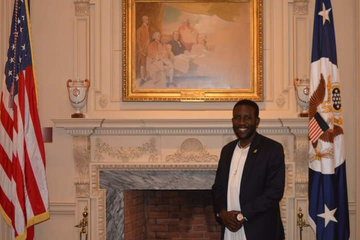
Leave a comment
AAU Virtual African Academic Diasporic Homecoming Side Event
On 29 September at 12:30 PM EDT, the AAP, will be hosting a side event webinar on "Building women research leaders from African Institutions – Sharing perspectives" during the Association of African Universities Diaspora Conference.
The event will be moderated by one of our very own co-directors, Dr. Jose Jackson-Malete, and she will be joined by panelists:
- Professor Ama de-Graft Aikins, British Academy Global Professor, Institute of Advanced Studies,
UCL
- Professor Barnabas Nawangwe, Vice Chancellor of
Makerere University
- Ms. Millicent L. Liani, DELTAS PhD Fellow, Center for Capacity Research at
LSTM
- Dr. Welore Tamboura, Lecturer from
Université des Lettres et des Sciences Humaines de Bamako
Click on the link below to register:
https://msu.zoom.us/webinar/register/WN_oHfxIxvZRFK4igInnmb8jw?fbclid=IwAR3E-EEjSk-O0pPKUNrhIRtrLz4q2MIhSK1DAi09NkO1nPek7_ATvAT2af4
By:
Elaina Lawrence
Monday, Aug 16, 2021
CULTURE AND SOCIETY
+1
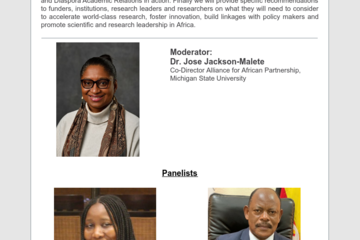
Leave a comment
PASET-RSIF PhD Scholarships in Applied Sciences, Engineering and Technology
The Partnership for skills in Applied Sciences, Engineering and Technology (PASET) is an African-led initiative with the goal of strengthening skills in the Applied Sciences, Engineering and Technology to further socio-economic transformation in sub-Saharan Africa (SSA). The Regional Scholarship and Innovation Fund (RSIF) is the flagship program of PASET. RSIF focuses on transformative technologies that have a far-reaching positive impact on society. It is funded by contributions from African governments, the World Bank and the Government of Korea and facilitated by the International Centre of Insect Physiology and Ecology (icipe) in Nairobi, Kenya. RSIF aims to train quality PhD students and post-doctoral researchers at selected African universities (‘African Host Universities’) to address the human resource gap of highly qualified specialists in the fields of applied sciences, engineering, and technology (ASET) and to contribute to improving research and innovation capacities in those fields in SSA. RSIF also supports the strengthening of research and innovation ecosystems at the African Host Universities by providing funding through competitive grants. Deadline for submission: 15th JUNE 2020, 17:00 (East Africa Time UTC+3)
Follow the link below to learn more:
https://www.rsif-paset.org/calls/scholarships-call/">https://www.rsif-paset.org/calls/scholarships-call/" rel="nofollow">https://www.rsif-paset.org/calls/scholarships-call/
By:
Elaina Lawrence
Monday, Aug 16, 2021
EDUCATION
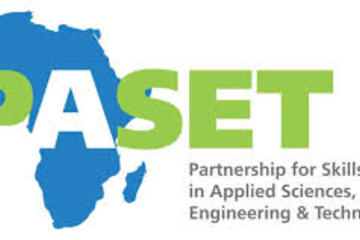
Leave a comment
PASET-RSIF PhD Scholarships in Applied Sciences, Engineering and Technology
The Partnership for skills in Applied Sciences, Engineering and Technology (PASET) is an African-led initiative with the goal of strengthening skills in the Applied Sciences, Engineering and Technology to further socio-economic transformation in sub-Saharan Africa (SSA). The Regional Scholarship and Innovation Fund (RSIF) is the flagship program of PASET. RSIF focuses on transformative technologies that have a far-reaching positive impact on society. It is funded by contributions from African governments, the World Bank and the Government of Korea and facilitated by the International Centre of Insect Physiology and Ecology (icipe) in Nairobi, Kenya. RSIF aims to train quality PhD students and post-doctoral researchers at selected African universities (‘African Host Universities’) to address the human resource gap of highly qualified specialists in the fields of applied sciences, engineering, and technology (ASET) and to contribute to improving research and innovation capacities in those fields in SSA. RSIF also supports the strengthening of research and innovation ecosystems at the African Host Universities by providing funding through competitive grants. Deadline for submission: 15th JUNE 2020, 17:00 (East Africa Time UTC+3)
Follow the link below to learn more:
https://www.rsif-paset.org/calls/scholarships-call/">https://www.rsif-paset.org/calls/scholarships-call/
By:
Elaina Lawrence
Monday, Aug 16, 2021
EDUCATION

Leave a comment
Call for Expressions of Interest from Professors in Africa
Dear Colleagues The Association of African Universities (AAU) and the African Centre for the Constructive Resolution of Disputes (ACCORD) are collaborating to identify two (2) Professors from each African Country for a fully funded Conflict Resolution Training in the month of April 2020. We are therefore seeking for Professors who are academics and or researchers with an interest in the field of Peace, Security and Conflict studies - or other fields of specializations - to submit their details for consideration The candidates should be African scholars located in African Universities. If you fit this description please complete this form which will take you 4 minutes or less: https://urldefense.com/v3/__https:/aau.us8.list-manage.com/track/click?u=6cc9eba9342422628d5639f6e&id=373af9a62a&e=b9efd15225__;!!HXCxUKc!nklxfY2eSwb7fY1oUxjqOgMmxKyFTNxifr4bpKRUUkRxgdt0SXxkWxX11xKfcWY$" target="_blank" rel="noopener noreferrer" data-auth="NotApplicable">https://www.research.net/r/PeaceSecCon&nbsp" rel="nofollow">https://www.research.net/r/PeaceSecCon  We will be grateful for your quick actions before 1700 GMT on Friday 6th March 2020. Please feel free to share with others Yours in the service of Higher Education in AfricaProfessor Etienne Ehouan EhileSECRETARY GENERAL
By:
Elaina Lawrence
Monday, Aug 16, 2021
EDUCATION
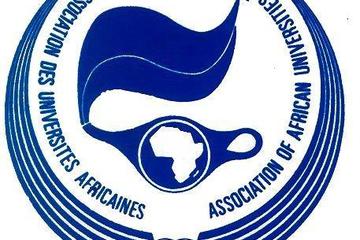
Leave a comment
CALL FOR PAPERS: Private and Public Universities and the Future of Tertiary Education in Africa
Private and Public Universities and the Future of Tertiary Education in Africa
THE UNIVERSITY OF ABUJA AND THE UNIVERSITY OF TEXAS AT AUSTIN
Call for Papers
University of Abuja, Nigeria
July 8-11, 2020.
The need to train qualified manpower required in public, private and civic spaces has spurred the establishment of universities in Africa post-independent. As against the few universities that the colonialists established, post-independent African leaders considered university education to be fundamental to the project of national development to which they were committed. In the first four decades of independence, the continent witnessed massive expansion in the number of public universities established by national and sub-national governments. However, as the population continued to grow, access to universities established by the state became severely limited. To fill this gap, churches, rich individuals and in a few instances, international universities began to make in-roads to the higher education sector on the continent. Despite the increase in the number of universities in both public and private sectors, concerns exist on the quality of graduates, research and teaching. The competitiveness of universities in Africa has also been a matter of concern among stakeholders in the sector.
Against the backdrop of the increasing wave of private universities, public universities are affected by poaching of faculty members, competition for bright students, and changing perceptions by the public. In some instances, the increasing relevance of private universities is underscored by the problems associated with public universities such as frequent strikes, reduced capacity to admit students and limited facilities and technological infrastructures. At the same time, scepticism around private universities is based on the perception that many of them lack faculty members of the requisite quality and quantity, affecting research output as well as the competence or knowledge base of graduates, low academic standards, limited programmes focused on expensive fields of study, and poor infrastructure. This is compounded by other structural challenges including prohibitive and unpredictable regulations, delays in accreditation of courses, and a general lack of support from governments. Authoritarian governance structures in some private universities, also constitute a challenge to the atmosphere of academic freedom that universities are known for.
Despite these concerns, private universities have made immense contributions to different African societies. They have alleviated the burden of access placed on public universities, contributed to innovation in curricula, led to increased employability, and provided new models of educational delivery and funding. Some have outpaced and out-performed public universities. For example, The Times Higher Education World Universities ranking recognized Covenant University, a private faith-based institution, as the best university in Nigeria in 2018. Although the importance of private universities is growing, there is a paucity of research on the governance models of these universities and the additional challenges they poseto public universities. Additionally, there are concerns around lack of appropriate policies which are necessary to guide the relationship between private and public universities. Yet appropriate policies are needed to manage these two aspects of higher education on the continent in order to produce expected educational outcomes for national development both in the immediate and foreseeable future.
In the context of the ongoing challenges of development in Africa, the need to boost knowledge production, foster competitiveness of the higher education sector and respond to the fourth industrial revolution, scholars are invited to examine the intersection of private and public universities in Africa and how institutions in both sectors can contribute to meeting the demands for quality university graduates, conduct research and enhance national and continental development. We welcome papers that examine the following thematic issues. While we will consider papers that are grounded in concepts and theories, empirical papers based on country case studies are particularly welcome
· History of Private Universities and Public Universities
· Governance Models in Private and Public University Education in Africa
· Impact of Faculty poaching on Public and Private Universities in Africa
· Student Development Issues in African Universities
· Curriculum Issues in Higher Education in Africa
· Funding of Private and Public Universities in Africa
· African Universities and the Decolonisation Movement
· Higher Education and the Fourth Industrial Revolution in Africa
· Sustainability of higher education in Africa
· African Universities and the Decolonisation Movement
· Faculty poaching and sustainability of higher education in Africa
· Higher Education and the Fourth Industrial Revolution in Africa
· Private and Public Universities and The Future of Tertiary Education in Africa
· Strategic Roles for Private and Public Universities in Africa’s Transformation
· Private Universities and the Reform of Public Tertiary Education in Africa
· Stakeholders and Partnerships in Higher Education in Africa
· Policy and Reforms in Private and Public University Education
· Partnerships between Private and Public Universities in Africa
· the instability question in African public universities
· Social relevance of African universities
· Deficit of critical infrastructure and global competitiveness of African universities
· Unionism and the academia in Africa
· Funding challenge and performance possibilities of African universities
· African universities and development
· Future of university education in Africa.
· National Policies on Tertiary Education in Africa
· Government Regulations and Regulatory Agencies and African Universities
· Globalization, Liberalisation and Universities in Africa
· Management of Diversity and Inclusion in Private and Public Universities in Africa
· Comparative Case Studies of Universities in Private and Public Sectors in Africa
· Innovation and Research and Development (R&D) in African Universities
· Other related themes
Conveners:
Professor Abdul-Rasheed Na'Allah, Vice-Chancellor, University of Abuja and
Toyin Falola, The University of Texas at Austin
Registration fees (after an abstract has been accepted) are as follows:
- Foreign-based participants ($100);
- Nigerian-based (N10,000); and
- Students (N5,000).
All monies are to be sent to: Kari Garba Umar (0453640816, Guarantee Trust Bank, Domiciliary); 20226746812 (First Bank).
Participants are responsible for all associated costs, including feeding, hotel, and transportation.
Interested participants are invited to send an abstract of not more than 300 words by May 30, 2020 to:
- A. G. Umar Kari (umar.kari@uniabuja.edu.ng, +2348034757734)
Or
- Sam Oloruntoba dayotoba@gmail.com(+27842842427)
By:
Elaina Lawrence
Monday, Aug 16, 2021
EDUCATION
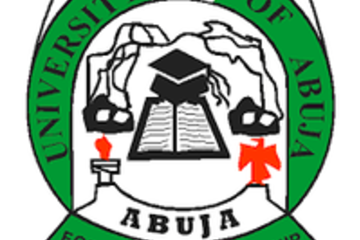
Leave a comment
Redesigning Agricultural Hand Tools in Western Kenya: Considering Human-Centered Design in ICTD
Human-centered design (HCD) is a creative approach to technology design that prioritizes users’ needs in the designprocess. It is characterized by three phases: understanding, ideation, and evaluation. Enthusiasm for using HCD persists among ICTD (information and communication technologies for development) researchers; funding agenciescontinue to support efforts to use the approach in development projects.
Read more about this topic in the link below.
https://itidjournal.org/index.php/itid/article/view/1731/603">https://itidjournal.org/index.php/itid/article/view/1731/603
By:
Elaina Lawrence
Monday, Aug 16, 2021
EDUCATION
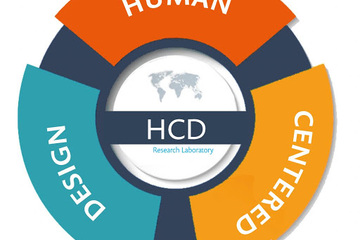
Leave a comment
Metrics-based profiling of university research engagement with Africa
Co-authorship data provides evidence of greater collaboration of MSU with non-African countries on African-focused research but a growing number of partner institutions from African countries. This growing collaboration provides significant benefits on strategic research conducted and its impact, as well as increasing the recognition of African researchers as contributors to impactful international research collaborations and improving the ability of MSU and its global and African partners to co-generate knowledge and innovation that can help solve global problems more effectively.
Learn more below.
https://link.springer.com/article/10.1007/s11192-019-03211-y">https://link.springer.com/article/10.1007/s11192-019-03211-y" rel="nofollow">https://link.springer.com/article/10.1007/s11192-019-03211-y
By:
Elaina Lawrence
Monday, Aug 16, 2021
EDUCATION

Leave a comment
Technology transfer for development in Nigeria: patterns, problems and prospects
Technology is critical to industrialization and economic development of every country. The disparity in income gap between countries is largely explained by the differences in technological generation, application and diffusion.
Learn more by clicking on the link below.
https://www.tandfonline.com/doi/full/10.1080/03050718.2019.1689150" rel="nofollow">https://www.tandfonline.com/doi/full/10.1080/03050718.2019.1689150">https://www.tandfonline.com/doi/full/10.1080/03050718.2019.1689150" rel="nofollow">https://www.tandfonline.com/doi/full/10.1080/03050718.2019.1689150" rel="nofollow">https://www.tandfonline.com/doi/full/10.1080/03050718.2019.1689150
By:
Elaina Lawrence
Monday, Aug 16, 2021
EDUCATION

Leave a comment
Challenges of creating alliances across borders: midterm reflections from the AAP
AAP reviews its two-year experience stressing lessons learned and shows how it has benefitted philosophically on the subject from recent linkage with the International Development Ethics Association, along with sharing the cross-border challenges faced.
https://www.tandfonline.com/doi/full/10.1080/17449626.2019.1641543">https://www.tandfonline.com/doi/full/10.1080/17449626.2019.1641543" rel="nofollow">https://www.tandfonline.com/doi/full/10.1080/17449626.2019.1641543
By:
Elaina Lawrence
Monday, Aug 16, 2021
EDUCATION
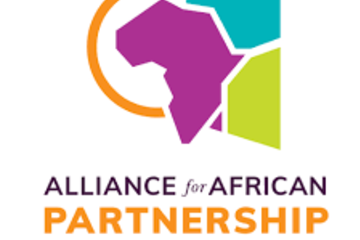
Leave a comment
ICABR 2020 Conference African Scholar Travel Grant Submission
CALL FOR ABSTRACTS 2020
Prospective participants are encouraged to propose papers, symposia, or posters in any area of applied bioeconomy research. Economists and other social scientists, biologists, policy makers, companies and students are encouraged to apply. The organizers are interested in proposals from Africa, China, India, the rest of Asia and Europe as well as the Americas. Proposals shall be submitted in any topic related to Bioeconomy.
https://icabr.net/icabr-2020/call-for-abstracts-2020/">https://icabr.net/icabr-2020/call-for-abstracts-2020/" rel="nofollow">https://icabr.net/icabr-2020/call-for-abstracts-2020/
See eligibility criteria and learn about the application process in the link below!
https://survey.uvm.edu/index.php/513867?newtest=Y&lang=en">https://survey.uvm.edu/index.php/513867?newtest=Y&lang=en" rel="nofollow">https://survey.uvm.edu/index.php/513867?newtest=Y&lang=en
By:
Elaina Lawrence
Monday, Aug 16, 2021
EDUCATION
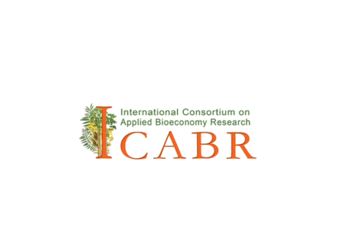

Leave a comment